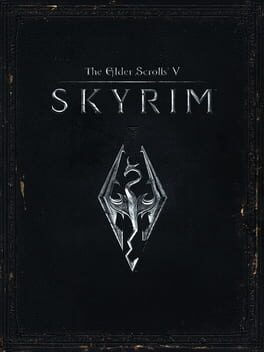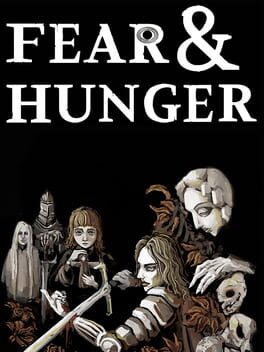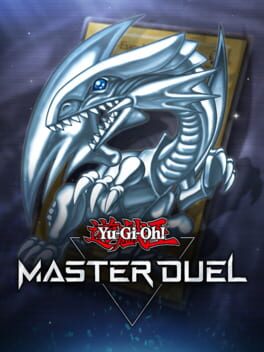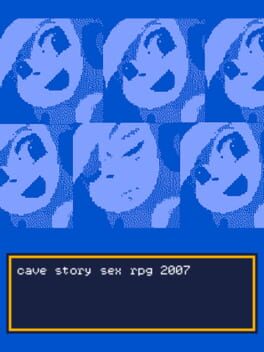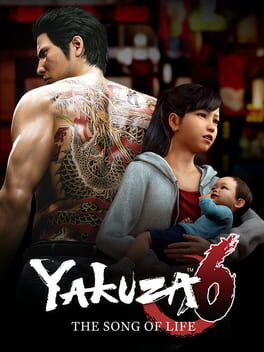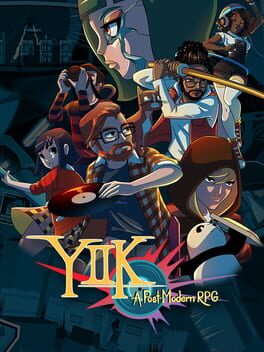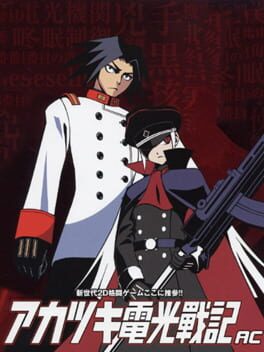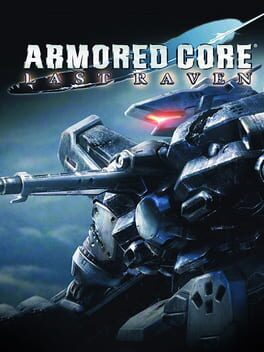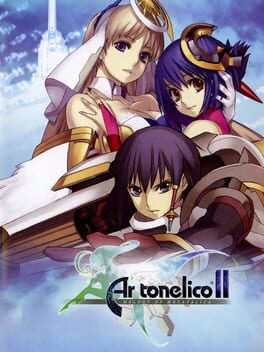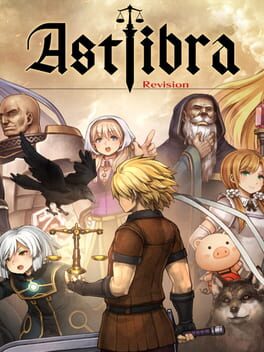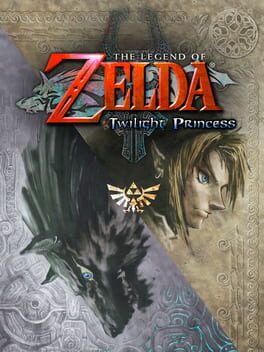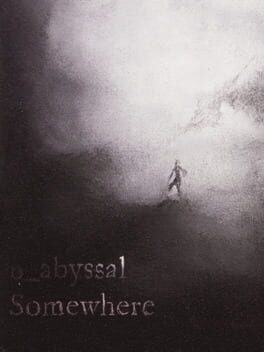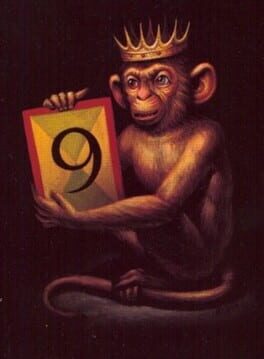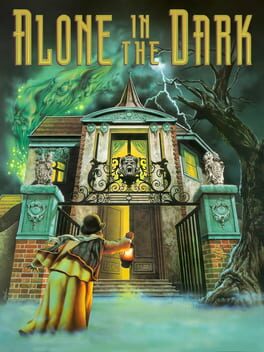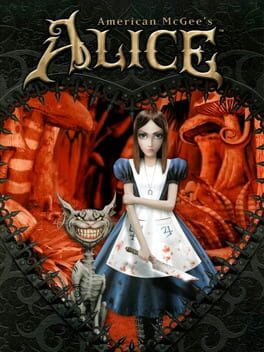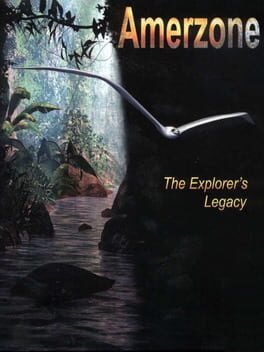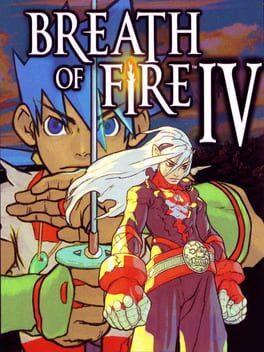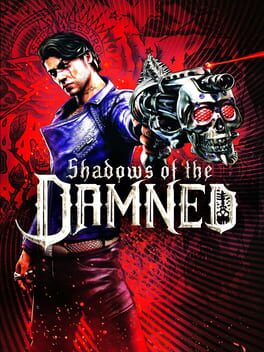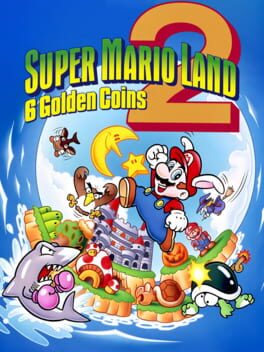isthisabacklog
12 reviews liked by isthisabacklog
Mother 3
2006
Chapter One
A child ran off from their village, filled with rage. A petty kind of anger; one that the child would have all but forgotten about the next time you saw them. This next time would never come, though. The child disappeared and in their place stood a Destroyer.
Chapter Two
The village seemed different. Strange new people kept showing up, with pig shaped masks covering their eyes. On the surface, they went about their business and chatted like any other villager but the more mind you paid them, the more their words rang hollow. Their thoughts and jokes seemed inorganic; mass produced even. As these Pigmasks gathered in the village, the original people there felt alienated. An old man, once known for his insights and his sharp wit would get angrier and angrier, lashing out at those around him and eventually leaving. More villagers would follow suit, some of them against their will, as this community they saw as a safe haven to share things they couldn’t share anywhere else slowly but surely became part of that “anywhere else.”
Were these Pigmasks to blame for everything? Or was it merely a case of things that always infested the community finally bubbling up to the surface? And what of the Destroyer, a one-time villager, now hailed as the champion of the Pigmasks?
Chapter Three
A monkey walked through a forest with boxes on their back; head and torso fighting a fierce battle to not fall and hit the ground. This grueling process eventually became routine and the monkey’s body eventually went on autopilot. They had all this time to think about if they’ll ever move past this task and if they’ll ever have a purpose.
Did the Destroyer have the same thoughts in this same forest?
Chapter Four
Another village child was not unlike the one who would become the Destroyer. In fact, you could say that these two village children were a single entity; two sides of the same coin. The Destroyer was the head of this coin, facing up and always the topic of conversation from those who saw this “face.” The tail, stuck to the ground, reveled in the attention the head received. They took glee in seeing friends talk about the Destroyer without any clue of its relation to the one standing near them. They searched for other villagers’ words on this mysterious Destroyer and snuck into houses to see them: the praise, the insults, the natural discussions surrounding this new “symbol” of the village.
This was not healthy for the village child. But still, could you blame them? This sensation of feeling important, even if that importance was just a niche micro-celeb in a small village, was much more comforting than the cold reality of meaning nothing in the grand scheme of things.
Chapter Five
A Pigmask working in a tower was a big fan of a rock band. They were utterly awestruck at the sight of that band’s merchandise on the man that entered the tower earlier that day and could not talk about anything other than that band: expressing their love of the band’s work, idolizing the ones behind it as supposedly great people, and elevating the band to some moral paragon because of milquetoast political opinions in its songs.
The Destroyer was in the tower too, watching this Pigmask’s conversation with mere apathy if not active contempt.
Chapter Six
Sometimes, ghosts of the past appear as reminders of what will never come back.
Chapter Seven
The Destroyer pulled a needle out of the ground and felt nothing. They pulled quite a bit of these needles before but something was different this time. The act was now done only out of some perceived obligation; to the Pigmasks and villagers cheering on or to the fake images of hearts that result from the act. It was time for the last needle to be pulled.
Chapter Eight
The Destroyer laid on the ground motionless as its tail pulled the final needle on its behalf. Its supposed stardom was crushed into not even half a star.
It’s over.
A child ran off from their village, filled with rage. A petty kind of anger; one that the child would have all but forgotten about the next time you saw them. This next time would never come, though. The child disappeared and in their place stood a Destroyer.
Chapter Two
The village seemed different. Strange new people kept showing up, with pig shaped masks covering their eyes. On the surface, they went about their business and chatted like any other villager but the more mind you paid them, the more their words rang hollow. Their thoughts and jokes seemed inorganic; mass produced even. As these Pigmasks gathered in the village, the original people there felt alienated. An old man, once known for his insights and his sharp wit would get angrier and angrier, lashing out at those around him and eventually leaving. More villagers would follow suit, some of them against their will, as this community they saw as a safe haven to share things they couldn’t share anywhere else slowly but surely became part of that “anywhere else.”
Were these Pigmasks to blame for everything? Or was it merely a case of things that always infested the community finally bubbling up to the surface? And what of the Destroyer, a one-time villager, now hailed as the champion of the Pigmasks?
Chapter Three
A monkey walked through a forest with boxes on their back; head and torso fighting a fierce battle to not fall and hit the ground. This grueling process eventually became routine and the monkey’s body eventually went on autopilot. They had all this time to think about if they’ll ever move past this task and if they’ll ever have a purpose.
Did the Destroyer have the same thoughts in this same forest?
Chapter Four
Another village child was not unlike the one who would become the Destroyer. In fact, you could say that these two village children were a single entity; two sides of the same coin. The Destroyer was the head of this coin, facing up and always the topic of conversation from those who saw this “face.” The tail, stuck to the ground, reveled in the attention the head received. They took glee in seeing friends talk about the Destroyer without any clue of its relation to the one standing near them. They searched for other villagers’ words on this mysterious Destroyer and snuck into houses to see them: the praise, the insults, the natural discussions surrounding this new “symbol” of the village.
This was not healthy for the village child. But still, could you blame them? This sensation of feeling important, even if that importance was just a niche micro-celeb in a small village, was much more comforting than the cold reality of meaning nothing in the grand scheme of things.
Chapter Five
A Pigmask working in a tower was a big fan of a rock band. They were utterly awestruck at the sight of that band’s merchandise on the man that entered the tower earlier that day and could not talk about anything other than that band: expressing their love of the band’s work, idolizing the ones behind it as supposedly great people, and elevating the band to some moral paragon because of milquetoast political opinions in its songs.
The Destroyer was in the tower too, watching this Pigmask’s conversation with mere apathy if not active contempt.
Chapter Six
Sometimes, ghosts of the past appear as reminders of what will never come back.
Chapter Seven
The Destroyer pulled a needle out of the ground and felt nothing. They pulled quite a bit of these needles before but something was different this time. The act was now done only out of some perceived obligation; to the Pigmasks and villagers cheering on or to the fake images of hearts that result from the act. It was time for the last needle to be pulled.
Chapter Eight
The Destroyer laid on the ground motionless as its tail pulled the final needle on its behalf. Its supposed stardom was crushed into not even half a star.
It’s over.
Final Fantasy VII
1997
“It’s true that sometimes I can’t figure out who I am. There’s a lot of things muddled up in my memories. But, Tifa… you said, ‘Long time no see, Cloud’ right? Those words will always support me. I am the one you grew up with. I’m Cloud of Nibelheim. No matter how much I lose faith in myself, that is the truth.”
It’s 3:17 in the morning and I’m lying awake in bed, typing this up on my ten year anniversary with the woman I will spend the rest of my life with. Even in this moment of respite, my mind once again begins to wander back into the Lifestream. Five years ago, against all my fears and doubts, I sat down with that same woman to show her the most important thing in my life up until meeting her. I had never even thought to share this with anyone I had been with before. Despite my anxiety and dread over what she might think, I was elated to find her enjoying every moment right alongside me. To my greater surprise, she had become a self-proclaimed Tifa fangirl and now cheers her on in every one of her on-screen moments, big or small. Everything in my life from my tastes, to my expressions, to my most cherished memories—even my love—is forever intertwined… with FINAL FANTASY VII.
“But that's all right. As long as I'm with you... As long as you're by my side... I won't give up even if I'm scared.”
As its name suggests, FINAL FANTASY VII is the seventh main numbered entry in the long-running FINAL FANTASY series. Originally conceptualized for the Nintendo 64 and later brought over to the Sony PlayStation in a move that many could describe to be betrayal, FINAL FANTASY VII marked a significant shift in the video game market. People all over the world, completely unaware of the FINAL FANTASY brand—or even roleplaying games entirely—flocked to stores in 1997 to pick up and play this game. I was not one of those people. But two years later, once I was old enough to read at a decent level, I experienced what would later become the most influential piece of media in my entire life.
“I was frozen in time, but now I feel as if my time is just beginning...”
FFVII continues the series trend of traversing a fantastical world of magic and wonder with a party of misfits trying to save the world, only there are some key differences. First and foremost, the Materia system. While the core combat retains the same almost-turn-based ATB (Active Time Battle) system first introduced in FINAL FANTASY IV, characters are completely customizable regarding skills and magic. While each character has their own innate stats, every character can be made to fit any role. The depth of the Materia system is the heart of FFVII’s gameplay, and if the effort and research are put in, it can reward the player with some insanely creative and useful combinations and setups that can outright break the game in a very fun way. In addition to the new Materia system comes Limit Breaks—powerful abilities able to turn the tide of combat when characters have sustained enough damage. These are all specific to the respective party members using them and are the key difference between each character.
“I always thought this planet was so huge. But lookin' at it from space, I realized it's so small. That's why I say this planet's still a kid. Someone's gotta protect it.”
In a harsh contrast to the games preceding it, FINAL FANTASY VII takes a page out of Akira to create a world that is brimming with technology. The Shinra Electric Power Company has created a new fuel source known as Mako by siphoning the life force of the planet itself without regard for Gaia’s wellbeing. This has led to great technological advancements throughout the world—most notably in the floating cyberpunk hub known as Midgar. The world of FFVII is far bleaker than most of its contemporaries at the time. The people of Gaia have no qualms telling it like it is and shedding some light on how hopeless, frail, and dissolute life has become after Shinra’s rise to power. Every character—no matter how insignificant—has had their life dramatically changed (for the worse) because of Shinra. As AVALANCHE, the player begins their journey performing acts of eco-terrorism to combat Shinra’s destruction of the planet, but soon uncovers a web of entangled stories and tragedies all converging on one single point—Sephiroth.
“Yo, jes' think about it... How many people in this world do ya think really understand themselves? People get depressed in life because they don't know what's up. But, they go on living. They don't run away... isn't that how it is?”
FINAL FANTASY VII was the first video game to tell me a story that resonated with me personally. Its plot is full of twists, turns, and big reveals that always had me shaking with excitement and anticipation, but the most important element is its character. Cloud Strife. Even if you’ve never played an RPG in your life, you’ve at least heard the name before somewhere, and for good reason. As the main protagonist of FFVII, Cloud is the character whose perspective you witness a majority of the events of the game through. To say Cloud is a dynamic character is an understatement for the ages. Extremely cold and dejected at first, Cloud develops into one of the most relatable and real fictional characters I’ve seen. While an enigma at first, players learn to understand Cloud’s true self over time. For me, there is no character I could ever understand better. As a kid, I shared so many of the aspirations and personality quirks of this mentally unstable box of emotional conflict and turmoil. From his prideful façade to his deepest sorrows and self-doubts, Cloud’s personality and depth shine through.
“What I have shown you is reality. What you remember, that is the illusion.”
Counter to Cloud is Sephiroth. By now, it’s nearly impossible to not know who Sephiroth is. He’s arguably even more popular than Cloud himself. Despite that, FINAL FANTASY VII is unparalleled in its foreshadowing and build-up to the true antagonist of the game. As the player makes their way through the world, they are constantly reminded just how powerful and foreboding Sephiroth is. From an execution of the world’s biggest threat to a flashback showing in raw numbers just how much of a force he is, Sephiroth is the perfect foil to Cloud. His personal connection to several of the key cast members adds a layer of determination and agency for the player. It’s not just Cloud that wants to bring Sephiroth down—it’s you.
“What to do? Have you lost your way? When that happens we each have to take a good long look at ourselves. There's always something in the deepest reaches of our hearts. Something buried, or something forgotten. Remember it... Whatever that is, must certainly be what you are all looking for...”
The music, much like everything else in the game, is remarkable. Composed by musical legend and series veteran Nobuo Uematsu, this soundtrack stands out even among his own works. This is a rare occasion where I enjoy every single song on the soundtrack. For a soundtrack of nearly 90 songs, that’s quite a feat. Every piece amplifies their paired scene without fail be it serious or goofy. Many of the tracks represent the blend of fantasy and science fiction extraordinarily well with synthesized sounds and exhilarating melodies. Every location has its own unique theme that helps build immersion and set the mood accordingly. While the main battle theme (which is a certified video game classic at this point) plays for a majority of the combat encounters, several notable boss fights have their own music that creates memorable clashes with the evil of the world. I find myself listening to this soundtrack on a near-daily basis.
“I've... been thinking, too... about the universe... people... the planet... How wide and big... No matter where I go and what I do, it won't change a thing.”
There is no way I can objectively look at this game. It is so ingrained in who I am that I have to bring emotion and nostalgia into it. The game isn’t perfect—nothing is—but to me, it’s everything I need. An engaging story in a world that feels just as real as our own with characters that breathe life into it, all accompanied by ace gameplay and a soundtrack that can move you to tears. FINAL FANTASY VII is a lot of things to a lot of people. To me, it is my beginning. It is the reason I cherish competent storytelling, complex characters, and expansive worlds. It’s the reason I see video games as more than just a hobby to pass the time. It’s why I want to create experiences and memories with people, to inspire them to explore and look at things in new lights just as I did when I was a kid… or to bring two close people even closer together. FINAL FANTASY VII was the spark that started it all, to continue on to all sorts of new things. Five year-old me popped that disc in and the game took me by the hand and said,
“Let's mosey.”
And I couldn’t be more grateful that it did.
It’s 3:17 in the morning and I’m lying awake in bed, typing this up on my ten year anniversary with the woman I will spend the rest of my life with. Even in this moment of respite, my mind once again begins to wander back into the Lifestream. Five years ago, against all my fears and doubts, I sat down with that same woman to show her the most important thing in my life up until meeting her. I had never even thought to share this with anyone I had been with before. Despite my anxiety and dread over what she might think, I was elated to find her enjoying every moment right alongside me. To my greater surprise, she had become a self-proclaimed Tifa fangirl and now cheers her on in every one of her on-screen moments, big or small. Everything in my life from my tastes, to my expressions, to my most cherished memories—even my love—is forever intertwined… with FINAL FANTASY VII.
“But that's all right. As long as I'm with you... As long as you're by my side... I won't give up even if I'm scared.”
As its name suggests, FINAL FANTASY VII is the seventh main numbered entry in the long-running FINAL FANTASY series. Originally conceptualized for the Nintendo 64 and later brought over to the Sony PlayStation in a move that many could describe to be betrayal, FINAL FANTASY VII marked a significant shift in the video game market. People all over the world, completely unaware of the FINAL FANTASY brand—or even roleplaying games entirely—flocked to stores in 1997 to pick up and play this game. I was not one of those people. But two years later, once I was old enough to read at a decent level, I experienced what would later become the most influential piece of media in my entire life.
“I was frozen in time, but now I feel as if my time is just beginning...”
FFVII continues the series trend of traversing a fantastical world of magic and wonder with a party of misfits trying to save the world, only there are some key differences. First and foremost, the Materia system. While the core combat retains the same almost-turn-based ATB (Active Time Battle) system first introduced in FINAL FANTASY IV, characters are completely customizable regarding skills and magic. While each character has their own innate stats, every character can be made to fit any role. The depth of the Materia system is the heart of FFVII’s gameplay, and if the effort and research are put in, it can reward the player with some insanely creative and useful combinations and setups that can outright break the game in a very fun way. In addition to the new Materia system comes Limit Breaks—powerful abilities able to turn the tide of combat when characters have sustained enough damage. These are all specific to the respective party members using them and are the key difference between each character.
“I always thought this planet was so huge. But lookin' at it from space, I realized it's so small. That's why I say this planet's still a kid. Someone's gotta protect it.”
In a harsh contrast to the games preceding it, FINAL FANTASY VII takes a page out of Akira to create a world that is brimming with technology. The Shinra Electric Power Company has created a new fuel source known as Mako by siphoning the life force of the planet itself without regard for Gaia’s wellbeing. This has led to great technological advancements throughout the world—most notably in the floating cyberpunk hub known as Midgar. The world of FFVII is far bleaker than most of its contemporaries at the time. The people of Gaia have no qualms telling it like it is and shedding some light on how hopeless, frail, and dissolute life has become after Shinra’s rise to power. Every character—no matter how insignificant—has had their life dramatically changed (for the worse) because of Shinra. As AVALANCHE, the player begins their journey performing acts of eco-terrorism to combat Shinra’s destruction of the planet, but soon uncovers a web of entangled stories and tragedies all converging on one single point—Sephiroth.
“Yo, jes' think about it... How many people in this world do ya think really understand themselves? People get depressed in life because they don't know what's up. But, they go on living. They don't run away... isn't that how it is?”
FINAL FANTASY VII was the first video game to tell me a story that resonated with me personally. Its plot is full of twists, turns, and big reveals that always had me shaking with excitement and anticipation, but the most important element is its character. Cloud Strife. Even if you’ve never played an RPG in your life, you’ve at least heard the name before somewhere, and for good reason. As the main protagonist of FFVII, Cloud is the character whose perspective you witness a majority of the events of the game through. To say Cloud is a dynamic character is an understatement for the ages. Extremely cold and dejected at first, Cloud develops into one of the most relatable and real fictional characters I’ve seen. While an enigma at first, players learn to understand Cloud’s true self over time. For me, there is no character I could ever understand better. As a kid, I shared so many of the aspirations and personality quirks of this mentally unstable box of emotional conflict and turmoil. From his prideful façade to his deepest sorrows and self-doubts, Cloud’s personality and depth shine through.
“What I have shown you is reality. What you remember, that is the illusion.”
Counter to Cloud is Sephiroth. By now, it’s nearly impossible to not know who Sephiroth is. He’s arguably even more popular than Cloud himself. Despite that, FINAL FANTASY VII is unparalleled in its foreshadowing and build-up to the true antagonist of the game. As the player makes their way through the world, they are constantly reminded just how powerful and foreboding Sephiroth is. From an execution of the world’s biggest threat to a flashback showing in raw numbers just how much of a force he is, Sephiroth is the perfect foil to Cloud. His personal connection to several of the key cast members adds a layer of determination and agency for the player. It’s not just Cloud that wants to bring Sephiroth down—it’s you.
“What to do? Have you lost your way? When that happens we each have to take a good long look at ourselves. There's always something in the deepest reaches of our hearts. Something buried, or something forgotten. Remember it... Whatever that is, must certainly be what you are all looking for...”
The music, much like everything else in the game, is remarkable. Composed by musical legend and series veteran Nobuo Uematsu, this soundtrack stands out even among his own works. This is a rare occasion where I enjoy every single song on the soundtrack. For a soundtrack of nearly 90 songs, that’s quite a feat. Every piece amplifies their paired scene without fail be it serious or goofy. Many of the tracks represent the blend of fantasy and science fiction extraordinarily well with synthesized sounds and exhilarating melodies. Every location has its own unique theme that helps build immersion and set the mood accordingly. While the main battle theme (which is a certified video game classic at this point) plays for a majority of the combat encounters, several notable boss fights have their own music that creates memorable clashes with the evil of the world. I find myself listening to this soundtrack on a near-daily basis.
“I've... been thinking, too... about the universe... people... the planet... How wide and big... No matter where I go and what I do, it won't change a thing.”
There is no way I can objectively look at this game. It is so ingrained in who I am that I have to bring emotion and nostalgia into it. The game isn’t perfect—nothing is—but to me, it’s everything I need. An engaging story in a world that feels just as real as our own with characters that breathe life into it, all accompanied by ace gameplay and a soundtrack that can move you to tears. FINAL FANTASY VII is a lot of things to a lot of people. To me, it is my beginning. It is the reason I cherish competent storytelling, complex characters, and expansive worlds. It’s the reason I see video games as more than just a hobby to pass the time. It’s why I want to create experiences and memories with people, to inspire them to explore and look at things in new lights just as I did when I was a kid… or to bring two close people even closer together. FINAL FANTASY VII was the spark that started it all, to continue on to all sorts of new things. Five year-old me popped that disc in and the game took me by the hand and said,
“Let's mosey.”
And I couldn’t be more grateful that it did.
Fear & Hunger
2018
Signalis
2022
You writhe beneath my skin
Born of ailing flesh and love
My thoughts, consumed by your sorrow.
Waking nightmares plague me, endless
A slow rotting miracle plucked from time,
You are all that I love, everything I fear
And all the entanglement festering between
For want of fair chances,
I stared into your abyss
As I've done for many before
And in return, you tore out my heart,
Impaled my eyes with your scarlet terror
Invaded the privacy of solitude,
And plunged your iron claws into my very soul.
You interrupt my nights.
My days, occupied by you
You are inescapable, yet...
For all your malignance,
Burrowed under flesh
and boiling blood,
I refuse
to let
go
–
Signalis bores its hooks into my skull, carving grooves into my brain where my psychoses pool. There’s something to be said for its reliance on the narrative language of anime and survival horror, but whether it’s derivative or iterative is a moot point. These beats that ring familiar are sores that Signalis splits open with a sadist’s pleasure. I could sit here and rattle off references, the obvious calls that permeate the body of the work, but where does that get you? Where does that get any of us, other than a cognizant “if you know you know” stranglehold? The language of Signalis isn’t concerned with simply being “Space Resident Evil”, or “Utena by way of Evangelion”. Much like the doomed Penrose, the referential nature of Signalis is, in itself, a repetitious time loop. It is not a work of references, it is its references.
I bolt awake, and Signalis presses on the nerve center that kick started my love of horror. 2008, in front of a bombed-out Gamecube, Jill Valentine tinkers though a puzzle box called the Spenser mansion. 2022, I bumblefuck through the escape room that is Sierpinski S-23.
Another restless night, another stab into my brain. 2012, my first pangs of personalized gender misanthropy at the hands of Asuka Langley Sohryu and Rei Ayanami, the brilliant shine of sapphic love reflected by Utena and Anthy. A decade later, the hate has faded and its place remains remorse for the past, regret for the now as the signature flashes of light and text flicker, as LSTR-512 and Ariane waltz in their final moments.
Again, interrupted sleep prevails. October, last year, the clattering of keys clicked out a cacophonous rhythm as I parse out a write up for Illbleed, a game that set ablaze the dying candle that was my love for gaming, for horror as a whole. Now, after a global rotation, I return to Signalis in the same spot, a love for writing, for fear, for gaming, for love itself, rekindled after a seasonal stagnation.
To try to put definitive words to Signalis seems contradictory to the way the game is delivered, indirect and symbolic in a way anathemic to thematic deduction. In it, I saw the spark of life relight my passion, and I enacted swift death to the tyrant, critical analysis. I could brandish lofty terms, of this having flawless gameplay, immersive writing, a memorable soundtrack, or any other terms I would gladly throw around about games that I will forget in a week. It’s not perfect. I don’t want it to be perfect: It’s for me. I don’t need it to be anything more than what it means to me, and what it means is that I think I love games again.
I awaken once more from broken sleep.
It’s 2014. I’m sitting with someone who, at the time, was my closest friend. We’re huddled around a laptop deep into the night, burning through works that would come to reflect what matters to me in games.
It’s tonight. I’m on call with someone I love. I’m huddled over a keyboard, burning through a write-up of a work that redefines what matters to me in games.
Play Signalis. You probably won’t get what I got out of it. That’s a good thing; it means there’s going to be something else out there that gives you the same feelings that this gave me. For now, I can push you to try a game I view as my personal perfection.
Born of ailing flesh and love
My thoughts, consumed by your sorrow.
Waking nightmares plague me, endless
A slow rotting miracle plucked from time,
You are all that I love, everything I fear
And all the entanglement festering between
For want of fair chances,
I stared into your abyss
As I've done for many before
And in return, you tore out my heart,
Impaled my eyes with your scarlet terror
Invaded the privacy of solitude,
And plunged your iron claws into my very soul.
You interrupt my nights.
My days, occupied by you
You are inescapable, yet...
For all your malignance,
Burrowed under flesh
and boiling blood,
I refuse
to let
go
–
Signalis bores its hooks into my skull, carving grooves into my brain where my psychoses pool. There’s something to be said for its reliance on the narrative language of anime and survival horror, but whether it’s derivative or iterative is a moot point. These beats that ring familiar are sores that Signalis splits open with a sadist’s pleasure. I could sit here and rattle off references, the obvious calls that permeate the body of the work, but where does that get you? Where does that get any of us, other than a cognizant “if you know you know” stranglehold? The language of Signalis isn’t concerned with simply being “Space Resident Evil”, or “Utena by way of Evangelion”. Much like the doomed Penrose, the referential nature of Signalis is, in itself, a repetitious time loop. It is not a work of references, it is its references.
I bolt awake, and Signalis presses on the nerve center that kick started my love of horror. 2008, in front of a bombed-out Gamecube, Jill Valentine tinkers though a puzzle box called the Spenser mansion. 2022, I bumblefuck through the escape room that is Sierpinski S-23.
Another restless night, another stab into my brain. 2012, my first pangs of personalized gender misanthropy at the hands of Asuka Langley Sohryu and Rei Ayanami, the brilliant shine of sapphic love reflected by Utena and Anthy. A decade later, the hate has faded and its place remains remorse for the past, regret for the now as the signature flashes of light and text flicker, as LSTR-512 and Ariane waltz in their final moments.
Again, interrupted sleep prevails. October, last year, the clattering of keys clicked out a cacophonous rhythm as I parse out a write up for Illbleed, a game that set ablaze the dying candle that was my love for gaming, for horror as a whole. Now, after a global rotation, I return to Signalis in the same spot, a love for writing, for fear, for gaming, for love itself, rekindled after a seasonal stagnation.
To try to put definitive words to Signalis seems contradictory to the way the game is delivered, indirect and symbolic in a way anathemic to thematic deduction. In it, I saw the spark of life relight my passion, and I enacted swift death to the tyrant, critical analysis. I could brandish lofty terms, of this having flawless gameplay, immersive writing, a memorable soundtrack, or any other terms I would gladly throw around about games that I will forget in a week. It’s not perfect. I don’t want it to be perfect: It’s for me. I don’t need it to be anything more than what it means to me, and what it means is that I think I love games again.
I awaken once more from broken sleep.
It’s 2014. I’m sitting with someone who, at the time, was my closest friend. We’re huddled around a laptop deep into the night, burning through works that would come to reflect what matters to me in games.
It’s tonight. I’m on call with someone I love. I’m huddled over a keyboard, burning through a write-up of a work that redefines what matters to me in games.
Play Signalis. You probably won’t get what I got out of it. That’s a good thing; it means there’s going to be something else out there that gives you the same feelings that this gave me. For now, I can push you to try a game I view as my personal perfection.
I was so bad at this and getting owned so swiftly that it was actually starting to affect my mood. I can't win at Yu-Gi-Oh. Can't even get a single win. No matter how hard I try or study or practice my opponent has drawn every card necessary to summon 3 powerful Fuck You monsters to the field in a single turn. I don't understand. The training mode doesn't even come close to preparing me for this kind of Getting Owned.
I work a shitty job, am in enormous debt, I can't afford new tires or a new battery for my car, nothing works out in my favor, and I can't win at Yu-Gi-Oh. I remember when the Cleveland Browns didn't win a single game all year. I wonder how the QB, Deshone Kizer, felt during that stretch. You practice, you study, you do everything possible and yet a single win constantly eludes you. That was on a pretty grand stage, in front of millions. My torment is just in my bedroom while I watch Colorado Rockies baseball, hoping their perpetual losing and inability to play baseball with even the slightest bit of competency will give me perspective on how small my inability to win a Children's Card Game is. But it doesn't. I look at the Colorado Rockies and all I see is a mirror, it's like looking at the devil himself, mocking me for my near-constant bumbling and giving me a microcosm of my various financial woes in the form of a Blue-Eyes Ultimate Dragon being summoned to the field on the second turn just to own me.
If I were younger and still had dreams and aspirations I would probably suffer through the near constant losing just to get a glimpse at what winning a game of Yu-Gi-Oh might look like, but this shit is actually bumming me out. At least when I watch the Shitty Ass Fucking Worthless Colorado Rockies, we are divided by a screen and I am not Nolan Jones letting an easy fly-ball pop out of my glove. Actually BEING that hapless loser is too much for me to bear.
Still highly recommended as it is NOT League of Legends, though.
I work a shitty job, am in enormous debt, I can't afford new tires or a new battery for my car, nothing works out in my favor, and I can't win at Yu-Gi-Oh. I remember when the Cleveland Browns didn't win a single game all year. I wonder how the QB, Deshone Kizer, felt during that stretch. You practice, you study, you do everything possible and yet a single win constantly eludes you. That was on a pretty grand stage, in front of millions. My torment is just in my bedroom while I watch Colorado Rockies baseball, hoping their perpetual losing and inability to play baseball with even the slightest bit of competency will give me perspective on how small my inability to win a Children's Card Game is. But it doesn't. I look at the Colorado Rockies and all I see is a mirror, it's like looking at the devil himself, mocking me for my near-constant bumbling and giving me a microcosm of my various financial woes in the form of a Blue-Eyes Ultimate Dragon being summoned to the field on the second turn just to own me.
If I were younger and still had dreams and aspirations I would probably suffer through the near constant losing just to get a glimpse at what winning a game of Yu-Gi-Oh might look like, but this shit is actually bumming me out. At least when I watch the Shitty Ass Fucking Worthless Colorado Rockies, we are divided by a screen and I am not Nolan Jones letting an easy fly-ball pop out of my glove. Actually BEING that hapless loser is too much for me to bear.
Still highly recommended as it is NOT League of Legends, though.
i think theres something to be said about """"review culture"""" (lets call it that for now) when a 3-min long game that reads like vent art seems to garner attention for some reason
Why do we seek to quantify something clearly very personal based on how much it resonates with us?
I think my problem is that I think people are looking at this game as they would a product. Like it needs to have some value to me, otherwise it's not "worth playing".
But I don't think "cave story sex rpg 2007" (lol) ever tried to be relatable. Its, as others have noted, similar to a page from a personal diary. So why rate it based on how much we cared about it? Do we need to care? It feels to me like that was never the point, or the intention.
Talking about this game feels like seeing a sad, personal comic online and saying that you don't relate. Or looking at a random poem on the bathroom wall and trying to critique it.
If I made such a personal game and then saw people were saying how "it didn't resonate" with them, I'd feel pretty awkward, y'know? Why would it ever?
Why do we seek to quantify something clearly very personal based on how much it resonates with us?
I think my problem is that I think people are looking at this game as they would a product. Like it needs to have some value to me, otherwise it's not "worth playing".
But I don't think "cave story sex rpg 2007" (lol) ever tried to be relatable. Its, as others have noted, similar to a page from a personal diary. So why rate it based on how much we cared about it? Do we need to care? It feels to me like that was never the point, or the intention.
Talking about this game feels like seeing a sad, personal comic online and saying that you don't relate. Or looking at a random poem on the bathroom wall and trying to critique it.
If I made such a personal game and then saw people were saying how "it didn't resonate" with them, I'd feel pretty awkward, y'know? Why would it ever?
Spec Ops: The Line
2012
"The US military does not condone the killing of unarmed combatants. But this isn't real, so why should you care?"
I began collecting physical copies of Xbox 360 games almost a year ago, anticipating seventh generation releases might suffer from the same degree of inflation that's plagued earlier console libraries in the aftermarket. This was perhaps a foolish concern as many seventh gen games are still widely available on digital storefronts, but occasionally there's an exception, a game that gets delisted and which sees a hike in value that makes it highly sought after and prohibitively expensive. I picked up Spec Ops: The Line last March, and I'd say the near five times increase in its market value is a damn good ROI. That's why they call me Mr. Money.
Being delisted and thus becoming more relevant also served as a great motivator to finally take the game off my Xbox shelf andfight the good fight, oorah! shoot a bunch of unarmed civilians. My curiosity for it had been mounting for some time anyway, in no small part to the march of retroactive playthroughs and ensuing Hot Takes that have ended up in front of me with increasing frequency. Some of the more disparaging opinions I've seen cast Spec Ops as boorish, weakly imitating the broad strokes of its inspirations, most notably Heart of Darkness. Hell, the main antagonist, John Konrad, shares a name suspiciously similar to author Joseph Conrad -- it doesn't get more on-the-nose than that.
Indeed, when you compare Spec Ops: The Line to the quality of meta-narrative games releasing today, it seems downright quaint, maybe even oafish in how it makes its case against the institution of war and the distressing consequences of "justifiable violence." With a setup that amounts to "respected military leader has gone off the grid and established a cult" that uses borrowed imagery from Jacob's Ladder, and story beats that are undercut by the repeated pop of achievemnts, I can get where people are coming from.
However, Spec Ops is very much a game of its era, and it's easy to take for granted what it's doing when you aren't being mindful of the climate of gaming circa the late-aughts and early 2010s. This released during the height of Call of Duty's popularity, in a time when military shooters played more like propaganda for America's actions in the Middle East. These games frequently cast the player as the hero, whose actions were unassailable or at least justifiable enough that the player was never made to see or consider the consequences of what they'd done. America's Army was allowed to hit the mass market roughly around this time, for chrissake.
Spec Ops is a military shooter about military shooters, and directly addresses the way gaming culture insulated players to the violence of war by glamorizing it. It accomplishes this in ways both subtle and heavy-handed, typically within the same set piece, like the infamous white phosphorus scene which is set up like a typical mortar firing mission that then forces you to slowly walk through the aftermath and survey the horrific results of what you've done. Kid Coolout angrily yelling at Nolan North for having yet another mental break might functionally serve as an awkward statement of intent by the writers, and other games before Spec Ops looked into the camera and stated in no unclear terms that "war bad," but the very specific and pointed way in which Spec Ops attacks its particular brand of shooter makes what it's doing both novel and necessary.
I especially enjoyed some of the ways Spec Ops preys on how players might approach a game of this type during this era, too. The opening sequence has one of your squad members attempting to reason with a group of insurgents by speaking their language, leaving you in the dark as to what is being discussed while another squad member gets in your ear about an interactive piece of the environment. "Hey, that bus is full of sand, if you shoot it you can take them out..." Yeah. Yeah, what's a little war crime in my shooter? This is a video game, I'm doing that all the time. I see a window flashing yellow and a prompt that says "shoot" and I squeeeeze the trigger...
Of course, a lot of these choices - and those that are larger and more narratively driven - are an illusion. "I didn't have a choice," is something Walker repeatedly states to make peace with his actions. It's a video game, you did what was expected of you, so why should you stop and feel bad about it? The more you progress and the more Walker deteriorates physically and mentally, the more you're hit with these excuses. Even the loading screens trade helpful gameplay hints to press you on what you've done or otherwise steep you in Walker's headspace.
"To kill for yourself is murder. To kill for your government is heroic. To kill for entertainment is harmless."
None of this is particularly special when viewed strictly through a modern lens, but as a piece of work so heavily characterized by when it came out, I think it's pretty damn great. Less great, however, is its gameplay, which even by 2012 standards was about as dry as a cover-shooter could possibly get. This is partly the result of being hit with delays, one of which was to force a multiplayer mode into the final product, as was the trend at the time. I didn't bother to mess around in that, but having watched a few videos, it does appear very tacked on and lacks the core game's subversive spirit. If only that time were spent elsewhere, like incorporating more dynamic elements to the sand that's blanketed Dubai as was originally intended... oh well.
I think there's a lot of fair criticisms out there about Spec Ops: The Line, but I also think some of them are perhaps too colored by what is expected of a game today rather than appreciating the atmosphere of the time. There's enough of value here that I think it's worth playing even outside its notoriety as a delisted game, and as my pal Larry Davis pointed out to me in private, it's also crazy that this is where a series of 10$ PlayStation 1 games eventually ended up.
"You are still a good person."
(Sad "oorahs")
I began collecting physical copies of Xbox 360 games almost a year ago, anticipating seventh generation releases might suffer from the same degree of inflation that's plagued earlier console libraries in the aftermarket. This was perhaps a foolish concern as many seventh gen games are still widely available on digital storefronts, but occasionally there's an exception, a game that gets delisted and which sees a hike in value that makes it highly sought after and prohibitively expensive. I picked up Spec Ops: The Line last March, and I'd say the near five times increase in its market value is a damn good ROI. That's why they call me Mr. Money.
Being delisted and thus becoming more relevant also served as a great motivator to finally take the game off my Xbox shelf and
Indeed, when you compare Spec Ops: The Line to the quality of meta-narrative games releasing today, it seems downright quaint, maybe even oafish in how it makes its case against the institution of war and the distressing consequences of "justifiable violence." With a setup that amounts to "respected military leader has gone off the grid and established a cult" that uses borrowed imagery from Jacob's Ladder, and story beats that are undercut by the repeated pop of achievemnts, I can get where people are coming from.
However, Spec Ops is very much a game of its era, and it's easy to take for granted what it's doing when you aren't being mindful of the climate of gaming circa the late-aughts and early 2010s. This released during the height of Call of Duty's popularity, in a time when military shooters played more like propaganda for America's actions in the Middle East. These games frequently cast the player as the hero, whose actions were unassailable or at least justifiable enough that the player was never made to see or consider the consequences of what they'd done. America's Army was allowed to hit the mass market roughly around this time, for chrissake.
Spec Ops is a military shooter about military shooters, and directly addresses the way gaming culture insulated players to the violence of war by glamorizing it. It accomplishes this in ways both subtle and heavy-handed, typically within the same set piece, like the infamous white phosphorus scene which is set up like a typical mortar firing mission that then forces you to slowly walk through the aftermath and survey the horrific results of what you've done. Kid Coolout angrily yelling at Nolan North for having yet another mental break might functionally serve as an awkward statement of intent by the writers, and other games before Spec Ops looked into the camera and stated in no unclear terms that "war bad," but the very specific and pointed way in which Spec Ops attacks its particular brand of shooter makes what it's doing both novel and necessary.
I especially enjoyed some of the ways Spec Ops preys on how players might approach a game of this type during this era, too. The opening sequence has one of your squad members attempting to reason with a group of insurgents by speaking their language, leaving you in the dark as to what is being discussed while another squad member gets in your ear about an interactive piece of the environment. "Hey, that bus is full of sand, if you shoot it you can take them out..." Yeah. Yeah, what's a little war crime in my shooter? This is a video game, I'm doing that all the time. I see a window flashing yellow and a prompt that says "shoot" and I squeeeeze the trigger...
Of course, a lot of these choices - and those that are larger and more narratively driven - are an illusion. "I didn't have a choice," is something Walker repeatedly states to make peace with his actions. It's a video game, you did what was expected of you, so why should you stop and feel bad about it? The more you progress and the more Walker deteriorates physically and mentally, the more you're hit with these excuses. Even the loading screens trade helpful gameplay hints to press you on what you've done or otherwise steep you in Walker's headspace.
"To kill for yourself is murder. To kill for your government is heroic. To kill for entertainment is harmless."
None of this is particularly special when viewed strictly through a modern lens, but as a piece of work so heavily characterized by when it came out, I think it's pretty damn great. Less great, however, is its gameplay, which even by 2012 standards was about as dry as a cover-shooter could possibly get. This is partly the result of being hit with delays, one of which was to force a multiplayer mode into the final product, as was the trend at the time. I didn't bother to mess around in that, but having watched a few videos, it does appear very tacked on and lacks the core game's subversive spirit. If only that time were spent elsewhere, like incorporating more dynamic elements to the sand that's blanketed Dubai as was originally intended... oh well.
I think there's a lot of fair criticisms out there about Spec Ops: The Line, but I also think some of them are perhaps too colored by what is expected of a game today rather than appreciating the atmosphere of the time. There's enough of value here that I think it's worth playing even outside its notoriety as a delisted game, and as my pal Larry Davis pointed out to me in private, it's also crazy that this is where a series of 10$ PlayStation 1 games eventually ended up.
"You are still a good person."
(Sad "oorahs")
4 lists liked by isthisabacklog

